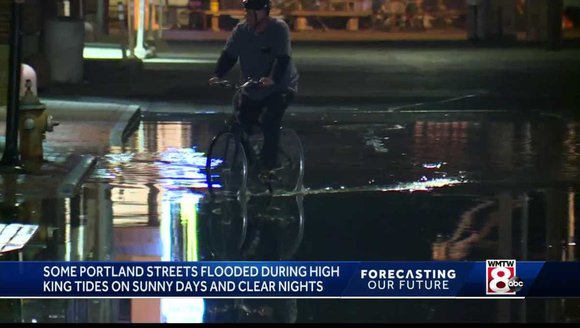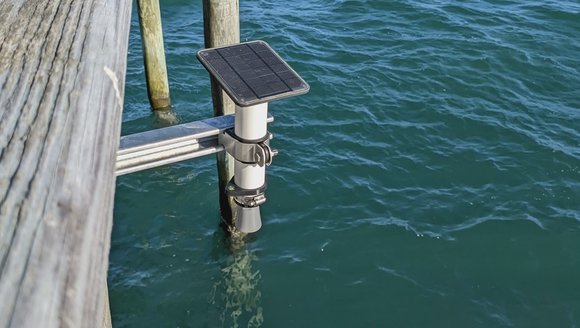Maine Islands Plan for Climate Change
Perspectives | Jan 23, 2023
In December 2022, students, teachers, and community members from North Haven and Vinalhaven took part in a community resilience training workshop developed by our Municipal Climate Action Program (MCAP) called Planning Forward. Read on for more.
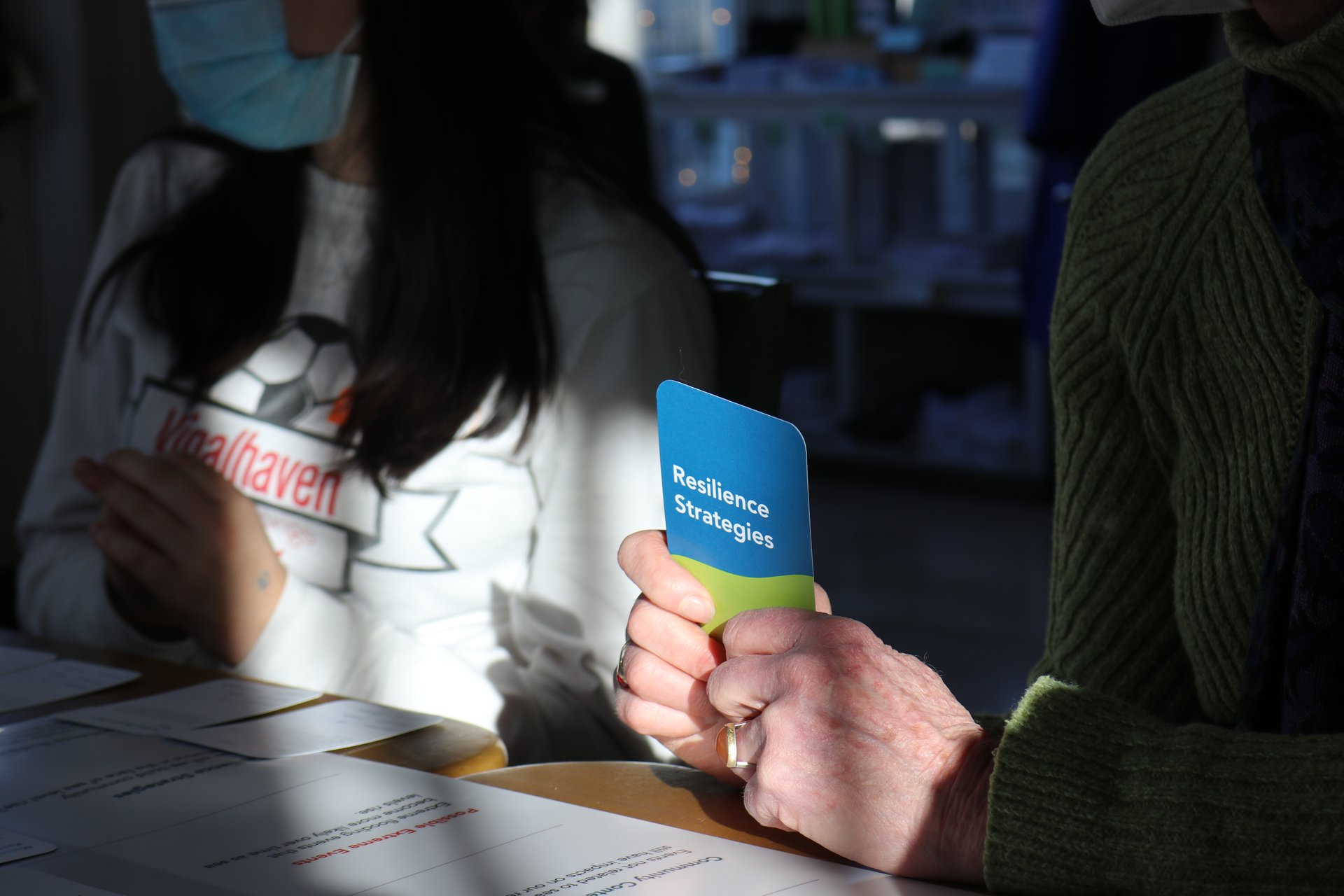
When people bring up “island time” it usually conjures up images of relaxing on sunny beaches with tiki drinks in hand, not a care in the world, and no place to be — but when it comes to sea level rise and more intense storms, island time means something different altogether. With islands on the frontlines when it comes to these hazards, time is running out and island communities like North Haven and Vinalhaven are well aware. The need to plan ahead is clear, but the decisions that need to be made are complicated and often come with difficult trade-offs.
That was a driving reason for why our Municipal Climate Action Program (MCAP), in partnership with the Island Institute, developed Planning Forward.



Planning Forward is an active learning, small-group workshop that surfaces community values to guide and empower participants in confronting the difficult reality of our changing climate and consider possible futures through new perspectives. MCAP Manager Gayle Bowness, along with other members of the GMRI Climate Center and education team, brought the workshop to North Haven and Vinalhaven in mid-December 2022 to support the island communities’ resilience planning processes.
“If we are going to tackle the challenges that come with rising seas and more intense storms, we need to develop resilience plans that reflect the challenges and needs of each community. The goal of Planning Forward is to bring community values and identities to the forefront and bring different perspectives to the table to create the best resilience plan possible.”
Gayle Bowness Municipal Climate Action Program Manager
Surfacing community values
After taking the North Haven ferry over to the island on a blustery, cold, December morning, Gayle and her team met with Community Resilience Coordinator Gabe McPhail. Gabe is a resident of Vinalhaven and has been supporting climate resilience efforts in North Haven and Vinalhaven (as well as many other Maine Communities). She organized and recruited for the Planning Forward workshop and welcomed the GMRI team along with 30 island residents to Waterman’s Community Center.
While confronting sea level rise and coastal hazards is no game, portions of the activity play out like one, with decks of cards, a board, and turn-based mechanics. Participants are given a budget, context about their communities, projected sea level rise, possible extreme flood related events, and as they move forward in time, have to make increasingly hard decisions to keep their communities safe, happy, and within budget. Making this activity even more meaningful, the “game” component is preceded by a collaborative discussion that reveals what matters most to the community members participating in the activity. Those values are continuously resurfaced by the participants and facilitators throughout the activity to keep decisions grounded in reality.
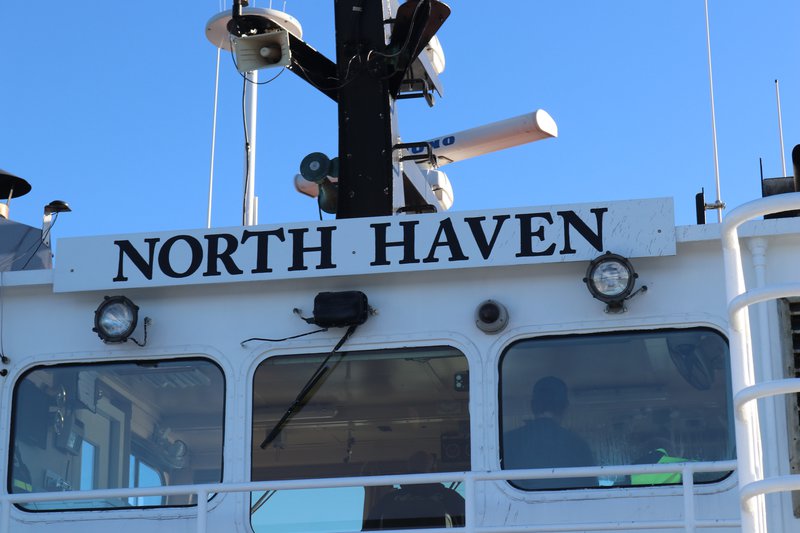
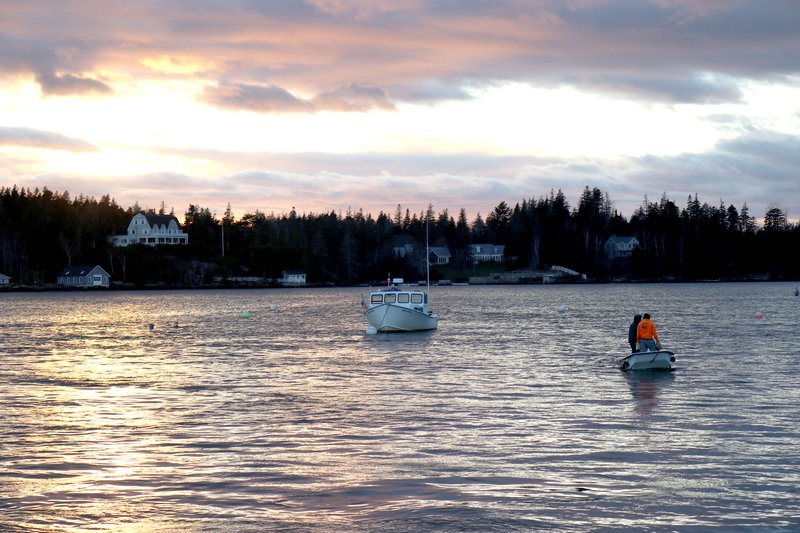
Intergenerational stewards
Sitting around the tables with resilience strategy cards in hand were local high school students from North Haven and Vinalhaven, along with their teachers and community leaders. This intergenerational mix of participants brought refreshing new perspectives to the conversation. They acknowledged frustrations about stalemates and quagmires due to the “old ways”, aired creative, innovative solutions to complex issues, and generated an atmosphere of hope, alloyed with a sense of urgency.
The importance of bringing young and old together to tackle such a looming challenge was not lost on Gabe:
“I think the intergenerational conversation is essential because you have these students who are hopefully going to be the community leaders of tomorrow, and bringing them together with some of the decision-makers who are currently working on issues in the community, talking about these issues in a setting where it’s not super high stakes, creative ideas can start flowing and there’s equal value to everyone’s voice.”
Gabe McPhail Region 1 Resilience Coordinator

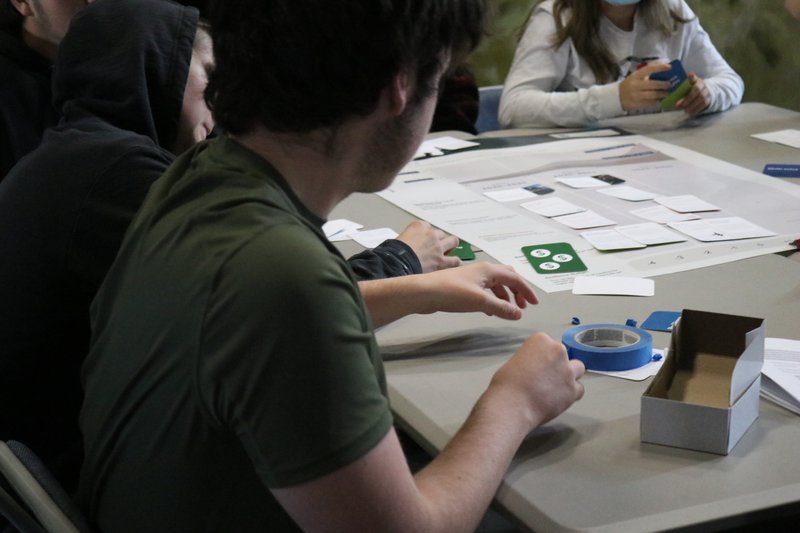

It takes a village (or two)
While North Haven and Vinalhaven are geological next door neighbors, the communities they harbor aren’t the same. North Haven has a year-round population of just over 400 with a thriving summer community. Vinalhaven has a population of over 1100 and is known for its lobster industry. Climate change, though, doesn’t discriminate between the island cultures or population sizes.
"“In this particular situation you have two very separate communities, but they're facing a lot of the same challenges. Planning Forward helps them think about all sorts of community resilience challenges, and how they can work together and leverage their resources to plan and then better prepare for what we know is coming.”
Gabe McPhail Region 1 Resilience Coordinator
Walking the Talk
Planning Forward is a great way to get difficult discussions going, but it takes more than talk to tackle and prepare for the impacts of climate change. That’s why this small group workshop is just the first stage of a three-part curriculum, Community Resilience Training, designed to support coastal and island communities in planning for sea level rise.
Following Planning Forward, these communities have the opportunity to participate in a Resource Workshop that brings together neighboring communities and connects participants with relevant tools, resources, processes, and professionals through interactive presentations.
Stage three is where the resilience planning really gets underway, and MCAP and the Island Institute work with communities to implement a planning framework where communities can determine and prioritize next steps that best reflect and respond to their climate planning needs that arose in the previous training stages.
In a state that values local control and is home to 140 coastal communities, climate planning is critical to our state-wide economic, ecologic, and cultural health. The Community Resilience Training program equips communities with not just the knowledge, skills, and tools needed but forges relationships and makes space for reflection and conversation that are critical for community- and data- driven climate planning.


